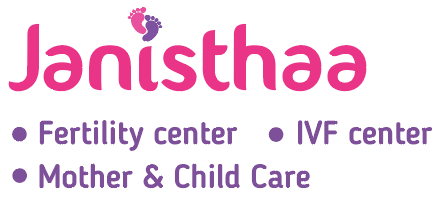The average menstrual cycle in women is 28 days. A cycle begins with the first day of bleeding during your menses. At this time, the follicular stimulating hormone (FSH) makes the egg grow inside the ovaries, and also thickens the uterine lining between days 2 and 14 to prepare the womb for a possible pregnancy. The egg dissolves in the absence of fertilization.
Ovulation, or the release of a mature egg from the ovary into the fallopian tube, occurs between days 11th and 21st of the menstrual cycle. You will release just one egg each month. If the timing is correct and the mature egg is fertilized by a healthy sperm within 24 hours of its release, then you conceive naturally and successfully.
However, it sounds simpler than it really is. In some women, ovulation cannot be achieved as spontaneously or regularly. They require to be put on fertility medications to stimulate the release of one or more eggs from the ovary to achieve pregnancy. Ovulation induction fertility treatment is just one of the methods of addressing infertility in women.
What Is Ovulation Induction?
Ovulation induction fertility treatment in women is used to correct anovulation or oligoovulation (irregular ovulation). Anovulation (absence of ovulation) or irregular ovulation can serve as an impediment in women to conceive successfully. Anovulation is a condition where the follicles do not mature to release eggs from the ovary into the fallopian tubes for fertilization. Anovulation can be a result of polycystic ovary syndrome (PCOS), nutritional deficiencies, or strenuous exercise.
Ovulation induction is an artificial means of inducing the growth of eggs inside the ovary and releasing them for fertilization. This is achieved with a combination of fertility medications. Ovulation induction is usually the first-line therapy for infertility in women because a large number of infertility cases arise from ovulation problems. It is a cost-effective and useful treatment for female infertility if she has good quality eggs in her ovarian reserve and there is no other cause of infertility present.
Ovulation induction aims at improving a women’s chance of pregnancy either naturally through sexual intercourse, or artificially through IVF, intrauterine insemination, or other fertility treatments.
How Is Ovulation Induction Done?
Ovulation induction is a non-invasive technique that involves treating the woman with several hormone-based medications to regulate her reproductive hormones, increase the chance of ovulation, and achieve pregnancy. These medicines may be oral or injectable. You will be suggested to take them at the beginning of your menstrual cycle, around day 4 of your menstruation. A blood test is conducted on day 10th to see the levels of the reproductive hormones in your blood. On day 14th, your healthcare provider would want to record the response, determine if you are ovulating naturally, and monitor it through an ultrasound.
You may have to undergo several rounds of blood tests and ultrasounds at specific intervals during your cycle for the doctor to conclusively determine what is happening inside your ovaries.
Regular monitoring will also prevent overstimulation and the risk of multiple pregnancy. The ultrasound gives a truthful picture to the doctor about the effects of treatment on follicle growth.
Why Ovulation Induction Might Be Needed?
Ovulation induction is a beneficial infertility treatment, and is suggested to any woman who faces ovulation failures precipitated by:
- Polycystic ovary syndrome (PCOS)
- Diabetes and insulin resistance
- Disorders in the pituitary gland
- Diminished ovarian reserve
- Unpredictable or irregular ovulation, also called oligoovulation
- Unexplained infertility
Take Advantage of the Best Ovulation Induction Treatment in Bangalore
Janisthaa offers advanced, supportive, and specialist ovulation induction treatment in Bangalore, alongside an extensive line-up of other fertility services. Our fertility treatment options range from ovulation induction to IVF, intrauterine insemination, egg freezing, fertility medication, and more. Our in-house team led by fertility experts leverage technology to treat female infertility problems in the most compassionate way.
Considering getting ovulation induction treatment but don’t know if it’s the best solution for your problem? Book a consultation with us today!
Recommended, Infertility can’t stop from realising your dreams of having a family

